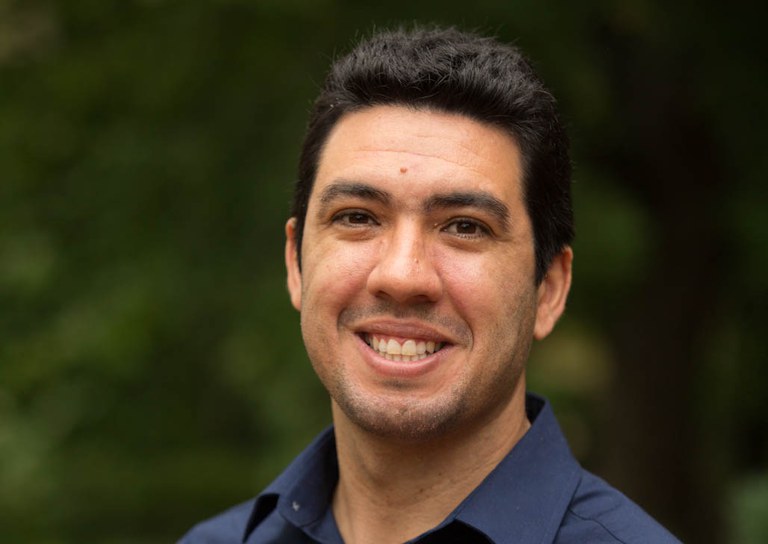Posted: October 21, 2017
Dr. Samuel Martins presented at the 2017 conference, which took place in Salt Lake City, Utah, October 19-21.
Dr. Samuel Martins, new Research Technologist and Lab Manager in Carolee Bull's Lab, is the third member of the Department of Plant Pathology and Environmental Microbiology (PPEM) to attend the Society for Advancement of Chicanos/Hispanics and Native Americans in Science (SACNAS) conference in as many years. The 2017 conference took place in Salt Lake City, Utah, October 19-21. SACNAS is a well-known national conference that gives appreciation to diversity by connecting people not only with different science backgrounds but also with different nationalities and races.

SACNAS 2017 Participants, Dr. Samuel Martins (3rd from right) | Credit: Alejandra Huerta, Colorado State
Samuel gave an invited presentation in the section "On the Plant Path" titled "The beneficial microbes: the justice league of the plant universe." He covered the role of the phytomicrobiome in agriculture, including preventing plant diseases, protecting plants against abiotic stresses, and providing nutrients to plants. Samuel also had the chance to show some of what he has been working on in PPEM, such as the translational taxonomy of closely related plant pathogenic bacteria with the ultimate goal of efficiently managing bacterial diseases. Finally, he highlighted the graduate programs in PPEM and generated interest among a diverse group of students to apply for graduate school in PPEM.

Dr. Samuel Martins | Credit: Alejandra Huerta, Colorado State
Samuel summarized the conference by saying, "Attending SACNAS 2017 was a totally different experience from previous conferences I have attended and also an excellent opportunity to build connections with professionals from other universities and advertise the PPEM department and its projects."
SACNAS is an inclusive organization dedicated to fostering the success of Chicano/Hispanic and Native American scientists, from college students to professionals, in attaining advanced degrees, careers, and positions of leadership in STEM.


